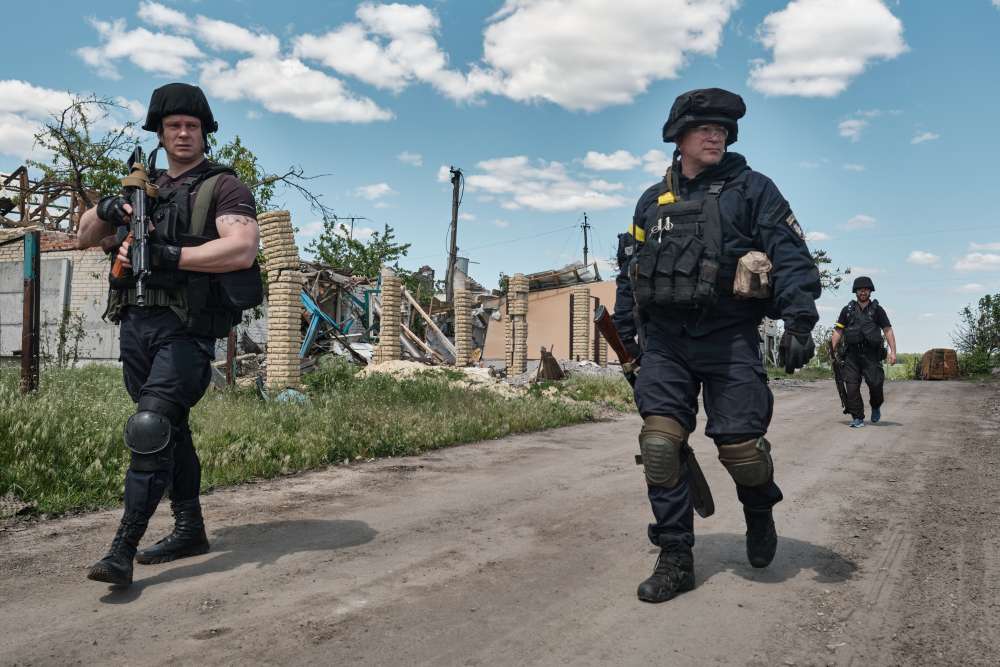A Matter of Trust: Community-Police Relations in Ukraine’s De-Occupied and Frontline Areas

In the face of Russian military occupation, police officers are often among the last civilian representatives of the Ukrainian state in frontline areas – and among the first to return where the Russian occupiers have been ousted. Law enforcement actors play a key role in providing everyday security and justice for local populations in Ukraine’s de-occupied and frontline areas; however, individual police officers often face war-induced and structural challenges that render their operations dangerous and sometimes impossible.
At the same time, their presence alone does not guarantee trustful relations with the communities they are meant to serve. Instead, security concerns, a lack of communication, as well as structural problems complicate their interaction. In addition, trust in Ukraine’s law enforcement agencies is historically very low. It will be crucial to mitigate friction between communities and police since a lack of trust in law enforcement can further alienate and endanger Ukrainian civilians who are already living in very challenging environments.
To support trustful community-police relations in areas highly affected by the war, international donors should coordinate their activities and base them on localized and regularly updated needs assessments to do no harm. It is also advisable that they pursue a scalable approach which can be adapted as local security situations sometimes deteriorate quickly.
Specifically, Ukraine’s international supporters can:
- Enable a functioning police presence even in the most difficult settings by providing star links, power banks, cars, and evacuation vehicles – taking into account that some of this infrastructure will almost certainly be destroyed by Russian shelling;
- Invest in the creation safe spaces – located for instance in a public place or shelter – which can serve as one-stop shops for essential services and medical attention and enable positive interactions with law enforcement agencies, to take some pressure off civilians;
- Support Ukraine’s law enforcement agencies as they take up new tasks under martial law, specifically in improving their communication about police activities as well as about citizen rights;
- Support law enforcement agencies in developing adequate psychosocial support structures in the face of a long war – but only if there is a proper understanding of the local context and needs;
- Use dialogue approaches in areas that are close to the frontline only if they have a clearly stated goal (e.g., community development, landmine awareness, etc.). Dialogue for dialogue’s sake risks undermining trust rather than serving to strengthen it. Instead, donors should conduct assessments to understand the needs of the population and determine to what extent they are met by local law enforcement.
The full brief is available for download (in English).
This is the sixth policy brief in our series“Feminist Perspectives for Supporting Ukraine.” The corresponding project is supported by the Stabilisation Platform, which is funded by the German Federal Foreign Office. It also builds on GPPi’s previous research on the conflict in Ukraine and feminist foreign policy.
About the author: Julia Friedrich is a research fellow at GPPi. Her research focuses on security dynamics in Russia and Ukraine and armed actors in conflict. She also works on stabilization and peacebuilding in German and European foreign policy.







